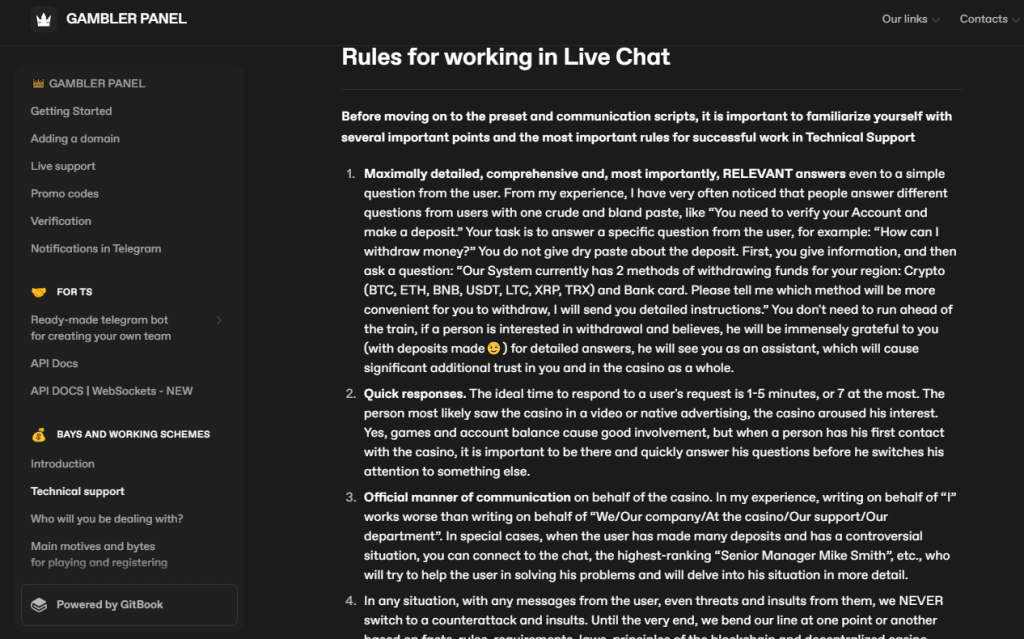
Gambler Panel Scam Operations with Affiliate Network Target Victims Through Fake Online Casinos
- Fake online gambling: A scam network of hundreds of polished fake online casinos offers fraudulent affiliations to interested parties.
- Stealing crypto: The Gambler Panel aims to defraud cryptocurrency users when they attempt to withdraw their purported winnings.
- Promoted on social media: These fake platforms are promoted via misleading social media ads, particularly on Instagram and TikTok.
The emergence of the Russian-operated Gambler Panel scam has facilitated a massive proliferation of fraudulent gambling platforms designed to deceive cryptocurrency users through sophisticated tactics, enabling the rapid deployment of hundreds of polished fake online casinos.
Systematic Fraud Architecture
The affiliate scam programs orchestrated by Gambler Panel, which cynically describe themselves as a "soulless project that is made for profit," operate through a multi-tiered deception framework, according to the latest Krebs on Security cybersecurity report.
The program's comprehensive documentation provides detailed guidance on victim manipulation techniques, social media exploitation strategies, and customer retention protocols designed to maximize financial extraction from each compromised individual.
Tutorials provide guidance on handling live chats and offer ready-made templates to help even novice affiliates drive traffic through social media services like Instagram and TikTok, emphasizing that the primary goal is to obtain a deposit from the victim. Yet, the only rule is reportedly not to scam citizens of the CIS (Commonwealth of Independent States).
The sophisticated gaming platforms feature professionally designed interfaces that closely mimic legitimate casino operations, utilizing what the operators describe as a "completely self-written from scratch FAKE CASINO engine."
The program boasts over 20,000 active affiliates, who reportedly receive up to 70% of the extracted funds.
A young researcher going by the nickname “Thereallo” who operates multiple Discord servers, discovered the connection between Gambler Panel, as an abrupt rise in the ads for casinos flooded the servers.
Thereallo suggested the cryptocurrency fraud scheme has significant scalability through its centralized platform architecture, which can simultaneously serve approximately 1,200 malicious domains with “a shared user base, IP tracking, and a custom API.”
At the end of July, Brian Krebs reported on fake online gaming websites that scam crypto users in the same way, some promoting non-existent Mr. Beast affiliations.
How the Scam Works
These campaigns, which begin with misleading social media advertisements, claim to offer victims $2,500 in promotional credits to establish initial engagement and use fake partnerships with popular athletes and social media influencers to gain trust.
The operational methodology centers on extracting verification deposits from victims who attempt to withdraw their alleged winnings.
Users are prompted to submit cryptocurrency payments of approximately $100 to complete identity verification procedures, after which additional deposits are systematically solicited through escalating wagering requirements.










